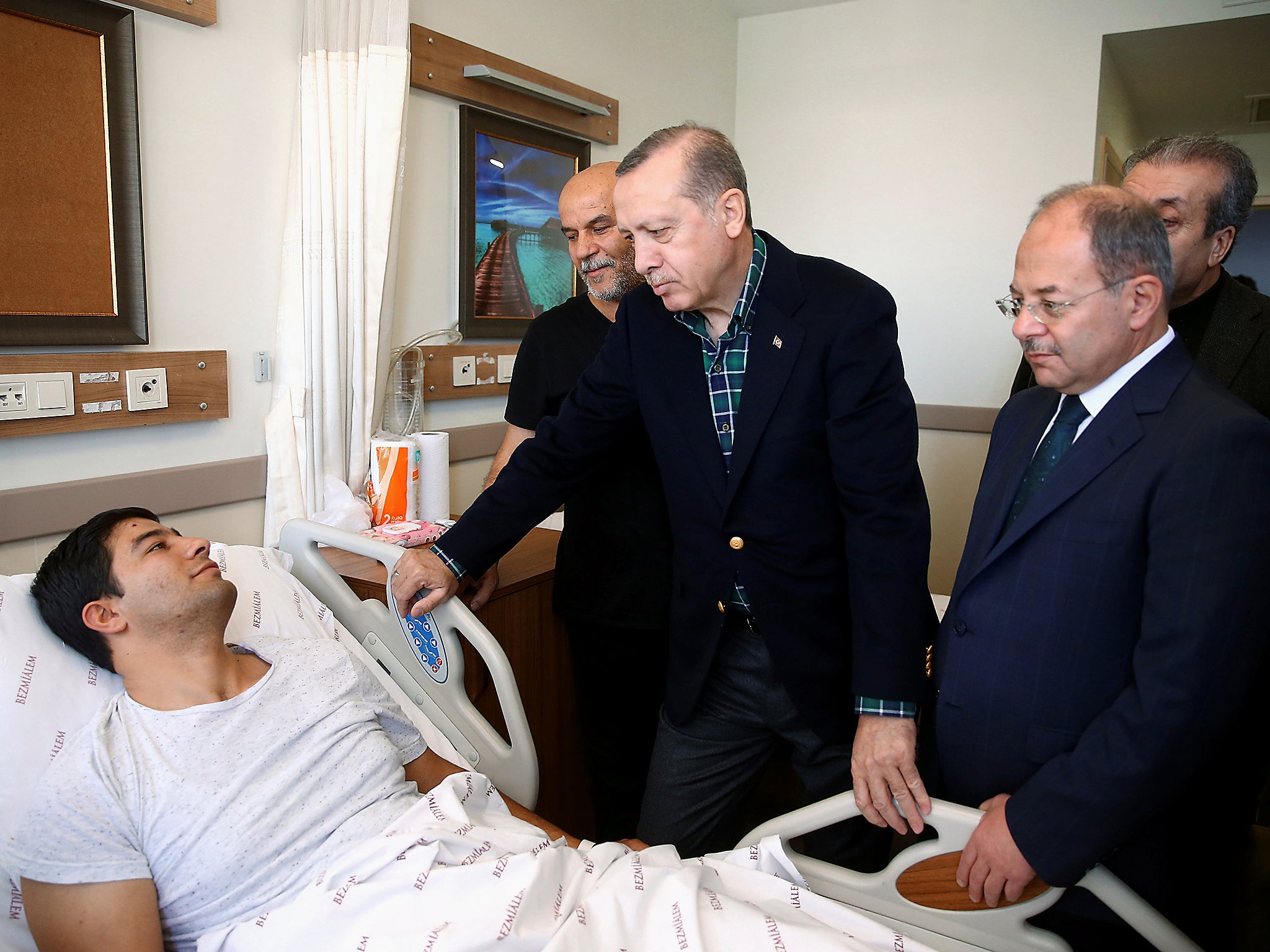How Turkey reacts to the terror attack in Istanbul will set a course for the Middle East
Understanding who was actually responsible – which group, which individuals – should be crucial in delivering justice. What is more important now, though, is whom the Turkish authorties deem and hold responsible

Your support helps us to tell the story
From reproductive rights to climate change to Big Tech, The Independent is on the ground when the story is developing. Whether it's investigating the financials of Elon Musk's pro-Trump PAC or producing our latest documentary, 'The A Word', which shines a light on the American women fighting for reproductive rights, we know how important it is to parse out the facts from the messaging.
At such a critical moment in US history, we need reporters on the ground. Your donation allows us to keep sending journalists to speak to both sides of the story.
The Independent is trusted by Americans across the entire political spectrum. And unlike many other quality news outlets, we choose not to lock Americans out of our reporting and analysis with paywalls. We believe quality journalism should be available to everyone, paid for by those who can afford it.
Your support makes all the difference.Terrorist outrages such as the attack on police and civilians in Turkey and on the Coptic Christian church in Cairo are now a fact of life in many countries. What is less of a given is how leaders react to them, and whether their actions serve only those who perpretrate such violence.
As with the botched coup in July, the first instinct of President Recep Tayyip Erdogan’s government is for vengeance. It was promised almost immediately after the bombing by a senior cabinet minister, and it came as no surprise.
Who was actually responsible – which group, which individuals – is important and should be crucial in delivering justice. What is more important now, though, is whom the Turkish authorities deem and hold responsible, and that is the Kurdistan Workers’ Party (PKK) and, more generally, the cause of the Kurdish people.
This instinct to strike back against Kurdish separatists militarily – and often beyond the rule of law or even the rules of war – is one of the many dangerous threats. It has in the past pushed Turkey far too close to appeasing the Kurds’ existential enemies in Isis. All the indications are that it may do so again. Turkey is a frightened nation, and it has seen in Iraq and Syria how easily an apparently stable and powerful state apparatus can disintegrate.
The Turkish people, though, must realise how potent a continuing threat to their peace and progress Isis represents. After all, the barbaric rule of Isis lapped right up to the Turkish border with Syria. Attempting to balance the forces of the PKK and Isis against each other is a policy that has visibly failed.
Without wishing a geographical break-up of Turkey, the only sustained answer to the Kurdish question lies in a political settlement – and, episodically, peace initiatives have succeeded. The difference between the PKK and its political arms and the so-called Islamic State is that there is at least the possibility that the Kurdish cause can be settled peacefully. The PKK has no ambition to establish some medieval caliphate in Ankara.
The most likely reaction from the Erdogan government will be further repression, suppression of the media, suspension of civil liberties and extrajudicial crimes of their own. In Egypt, meanwhile, the authorities seem even more powerless to restore law and order in their fractured nation, now under increasing economic pressure.
Even as Isis suffers defeats and setbacks in Aleppo and Palmyra, from what we know of its pathology it is unlikely to disappear, even as its geographical domain shrinks. It has infected too many minds, and perverted too much religious thinking, to just evaporate. As the Foreign Secretary Boris Johnson, said in his moment of candour last week, there is too little of the right kind of leadership among the regional superpowers of Turkey, Saudi Arabia, Iran and Egypt – and certainly not enough to end the terror.
Join our commenting forum
Join thought-provoking conversations, follow other Independent readers and see their replies
Comments